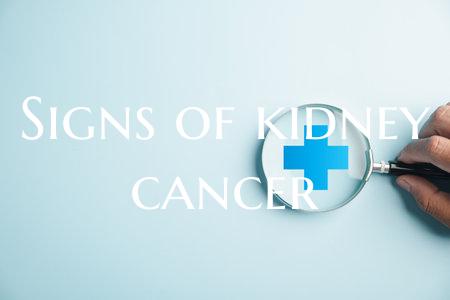
Signs of kidney cancer
Kidney cancer is a serious condition that can often go undetected until its later stages. Recognizing the signs and symptoms of kidney cancer is crucial for early detection and effective treatment. Here are some common signs that may indicate the presence of kidney cancer:
1. Blood in the Urine: The most common early sign of kidney cancer is blood in the urine, a condition known as hematuria. This may appear pink, red, or cola-colored and can sometimes be visible to the naked eye.
2. Pain or Discomfort in the Back or Side: Kidney tumors can cause pain or discomfort in the back or side of the body. This pain may be persistent and may worsen over time.
3. Unexplained Weight Loss: Kidney cancer can cause weight loss that is not attributed to diet or exercise. This weight loss may be significant and occur relatively quickly.
4. Fatigue: People with kidney cancer may experience unexplained fatigue or weakness, even with adequate rest and sleep. This fatigue may interfere with daily activities and quality of life.
5. Swelling in the Legs and Ankles: In some cases, kidney cancer can lead to the buildup of fluid in the body, causing swelling in the legs and ankles.
6. Anemia: Kidney cancer can lead to anemia, a condition characterized by a low red blood cell count. Symptoms of anemia may include fatigue, weakness, and paleness.
7. High Blood Pressure: Some individuals with kidney cancer may develop high blood pressure as a result of the tumor affecting the kidney's function.
8. Fever and Night Sweats: In advanced stages of kidney cancer, individuals may experience fever, night sweats, and other systemic symptoms.
It is important to note that these signs and symptoms can be caused by conditions other than kidney cancer. However, if you experience any of these symptoms, especially if they persist or worsen over time, it is important to consult a healthcare provider for evaluation and appropriate testing. Early detection and treatment of kidney cancer can lead to better outcomes and improved quality of life.